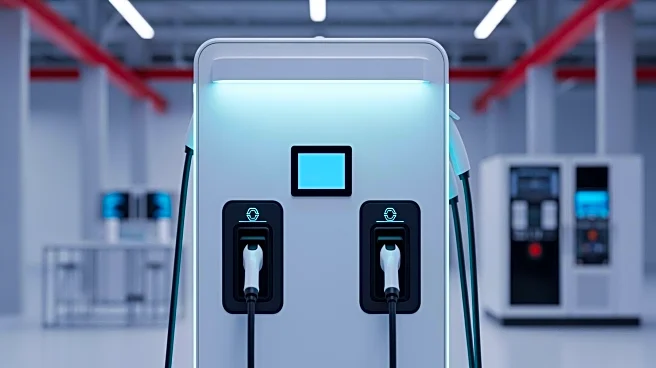What's Happening?
General Motors (GM) has announced the cessation of electric vehicle (EV) production at its Ingersoll plant in Canada. This decision is attributed to President Trump's rollback of support for EVs, including the elimination of a tax credit of up to $7,500
for EV purchases. The Ingersoll plant, which produced zero-emission delivery vans used by companies like FedEx, will see over 1,000 jobs impacted by this move. The demand for these vehicles has not met expectations, further exacerbated by the challenging business environment following the removal of tax incentives. Despite Canada's efforts to position itself as a leader in the EV industry, the timing of these investments appears misaligned with current market conditions.
Why It's Important?
The halt in production at GM's Canadian plant underscores the significant impact of policy changes on the automotive industry, particularly in the EV sector. The removal of tax credits in the U.S. has made it difficult for automakers to sustain their EV initiatives, affecting jobs and investments in regions like Canada that have heavily invested in this transition. This development highlights the interconnectedness of U.S. policy decisions and international manufacturing strategies, with potential repercussions for the global auto industry. Stakeholders, including Canadian autoworkers and government officials, face challenges in maintaining momentum towards a sustainable automotive future.
What's Next?
The decision by GM may prompt Canadian policymakers to reassess their strategies for supporting the EV industry, potentially seeking new incentives or partnerships to attract and retain automotive investments. The response from labor unions and industry leaders will be crucial in shaping future negotiations and policies. Additionally, other automakers may reevaluate their production plans in light of shifting demand and policy landscapes, potentially leading to further adjustments in the global EV market.















